
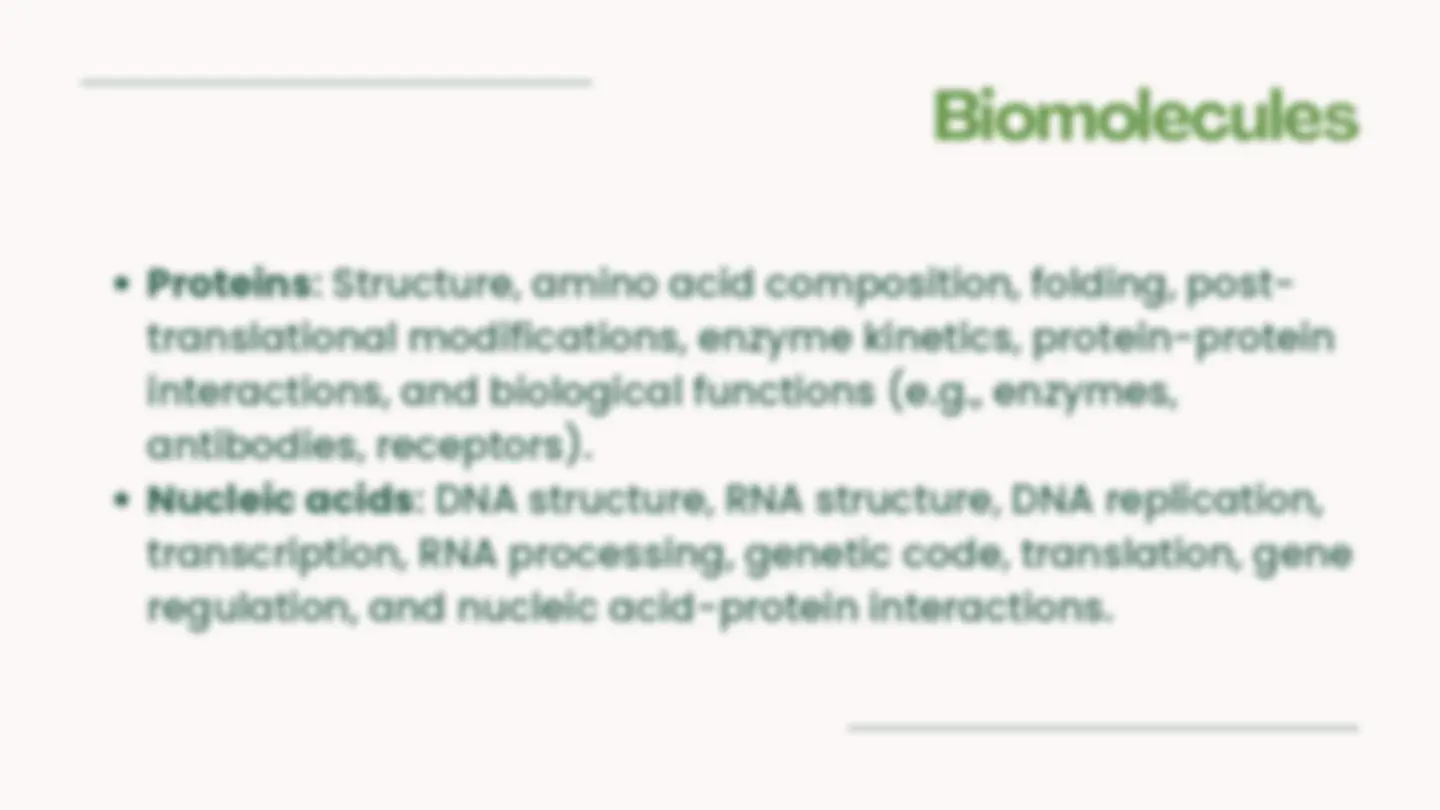
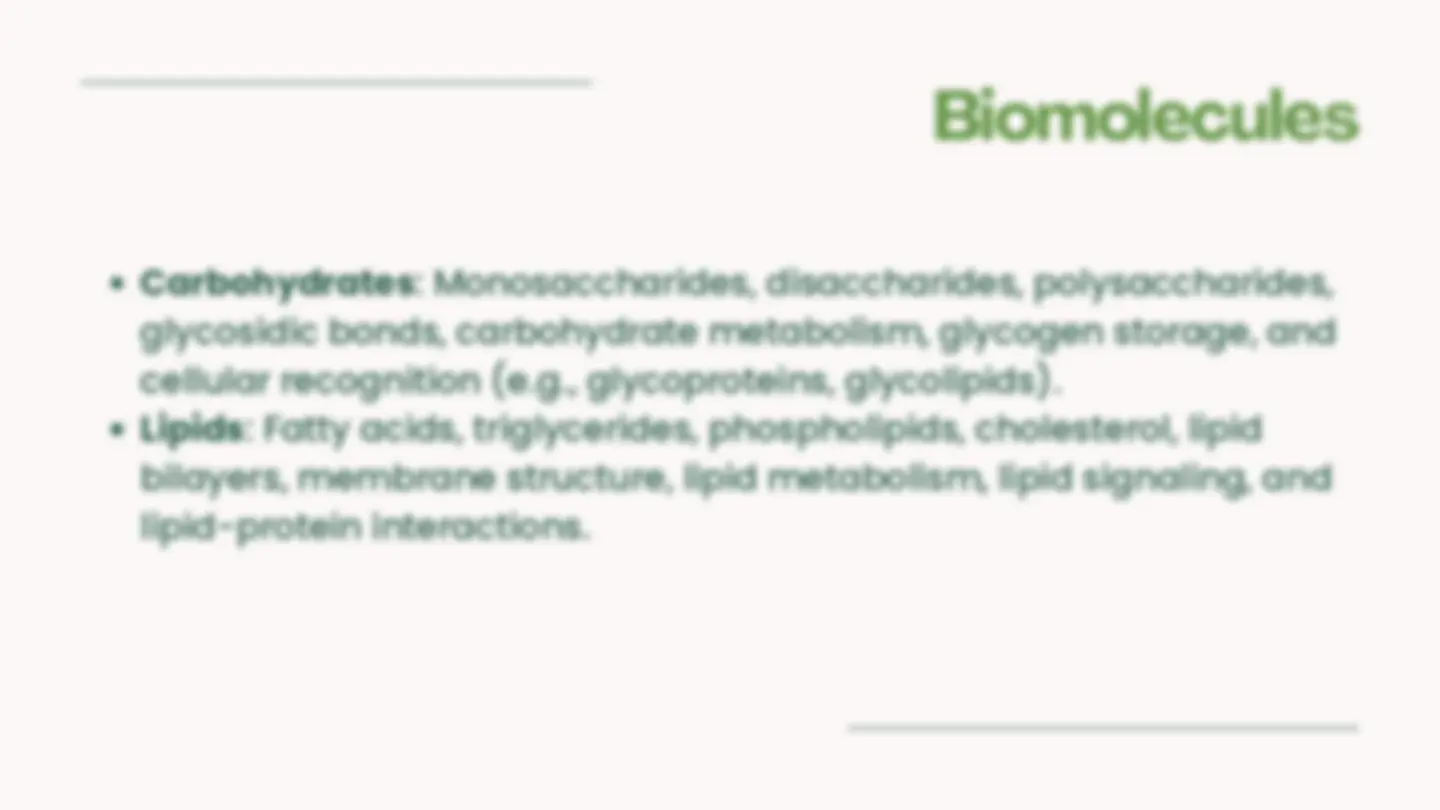
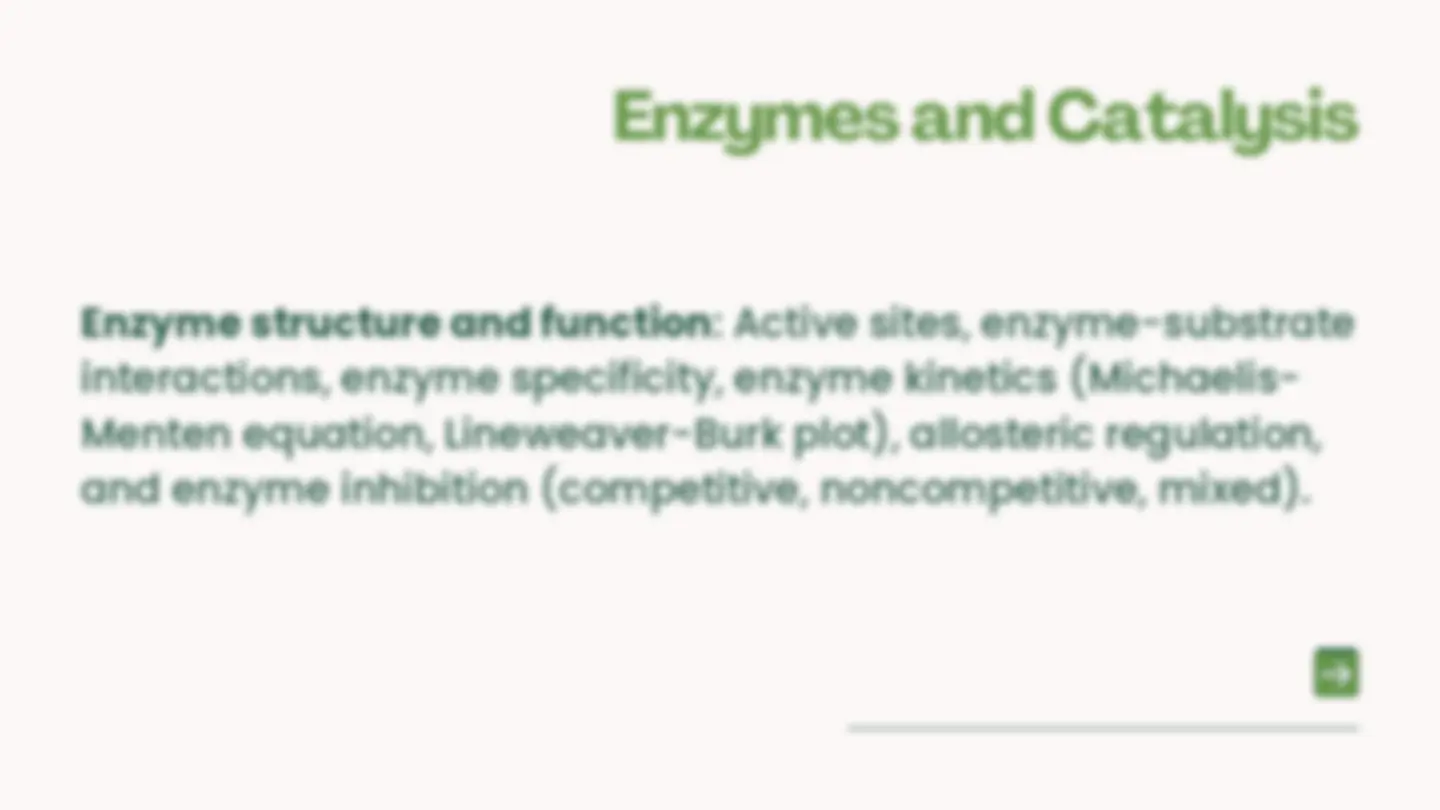
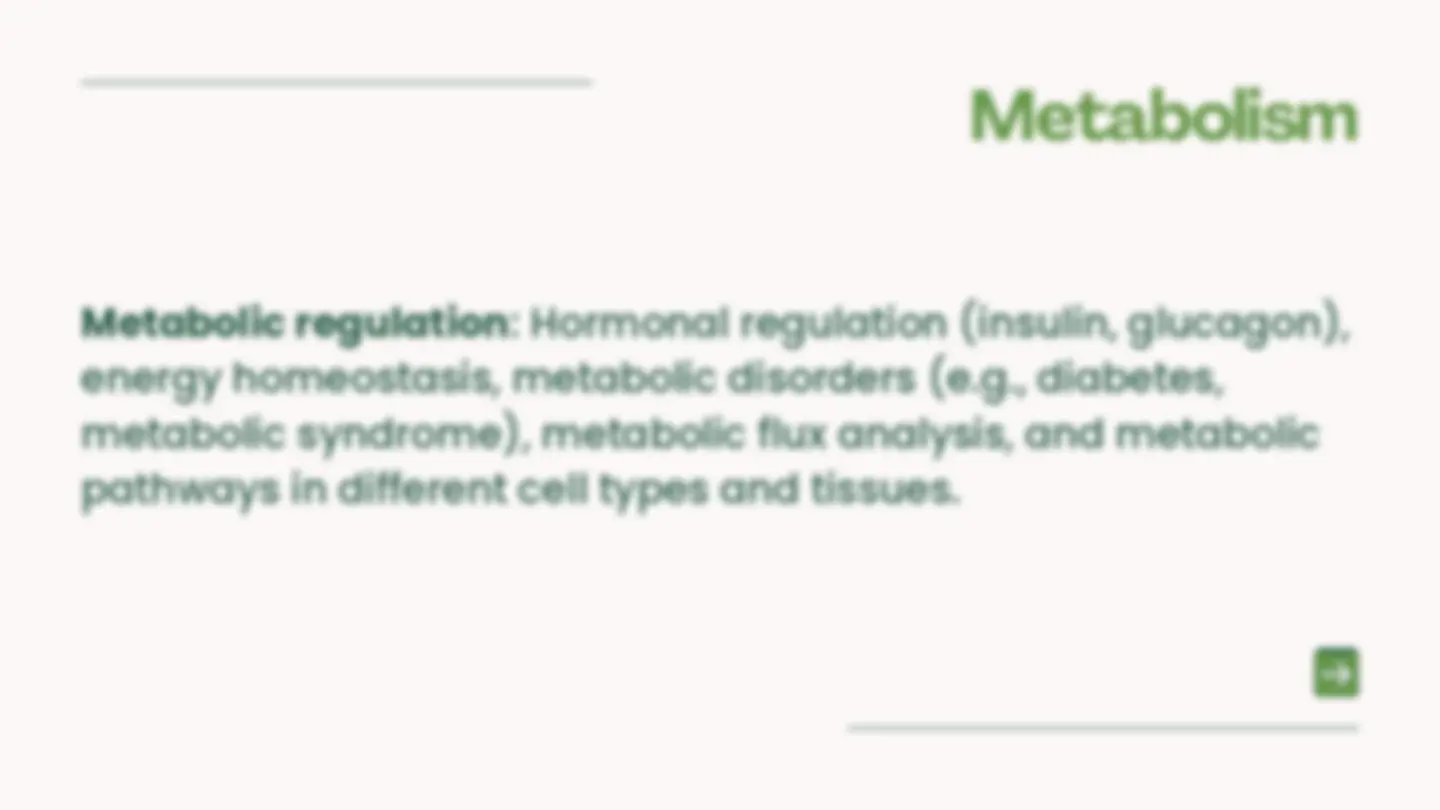
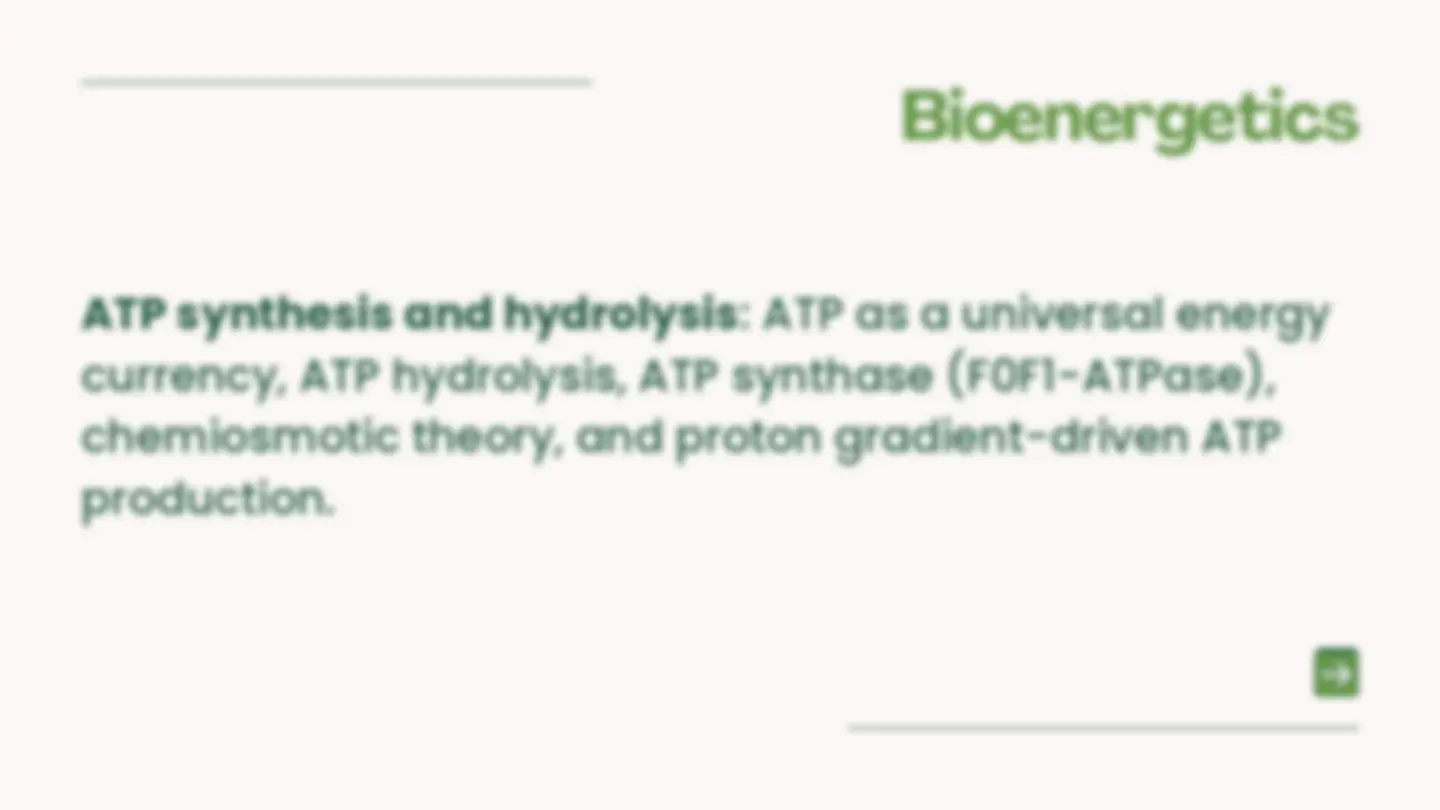
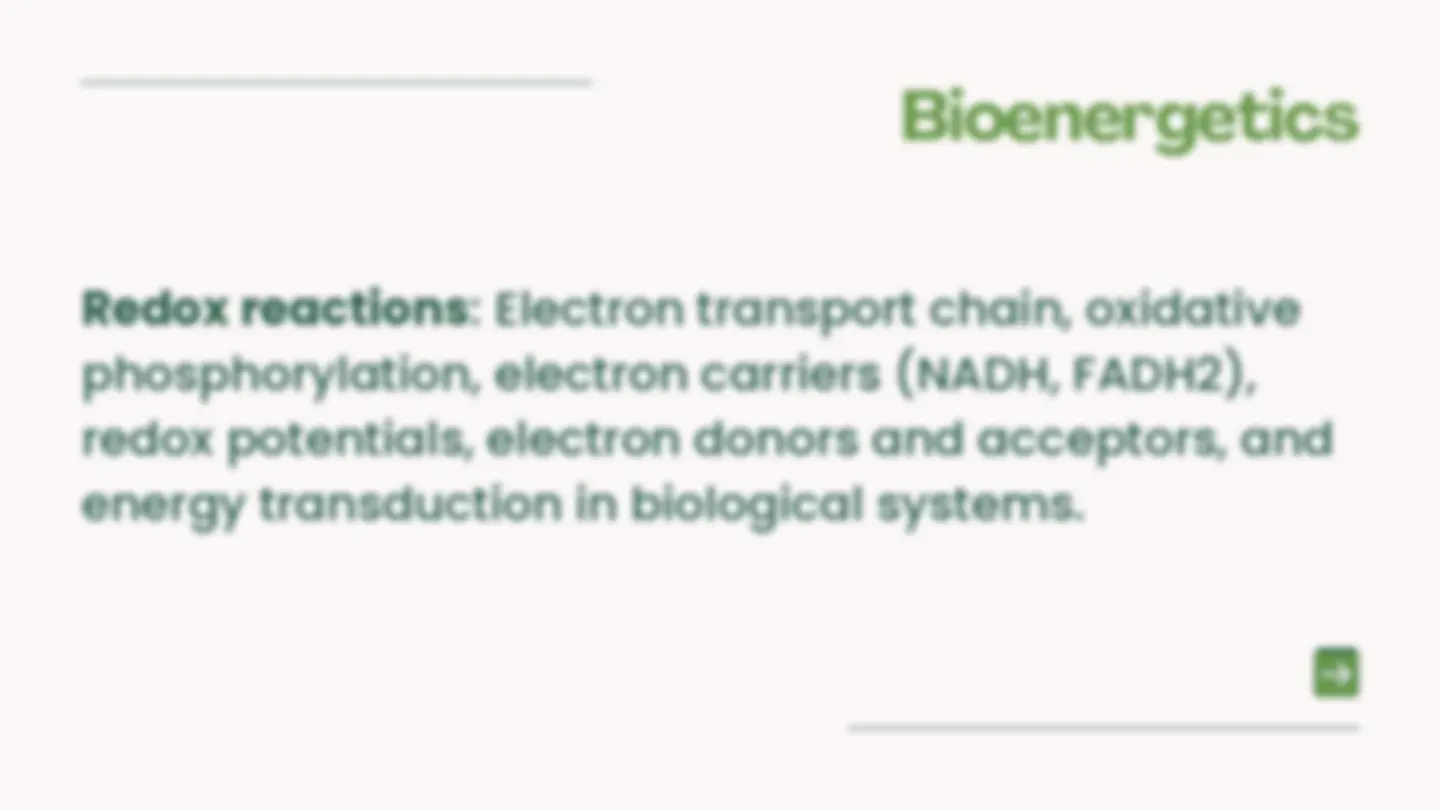
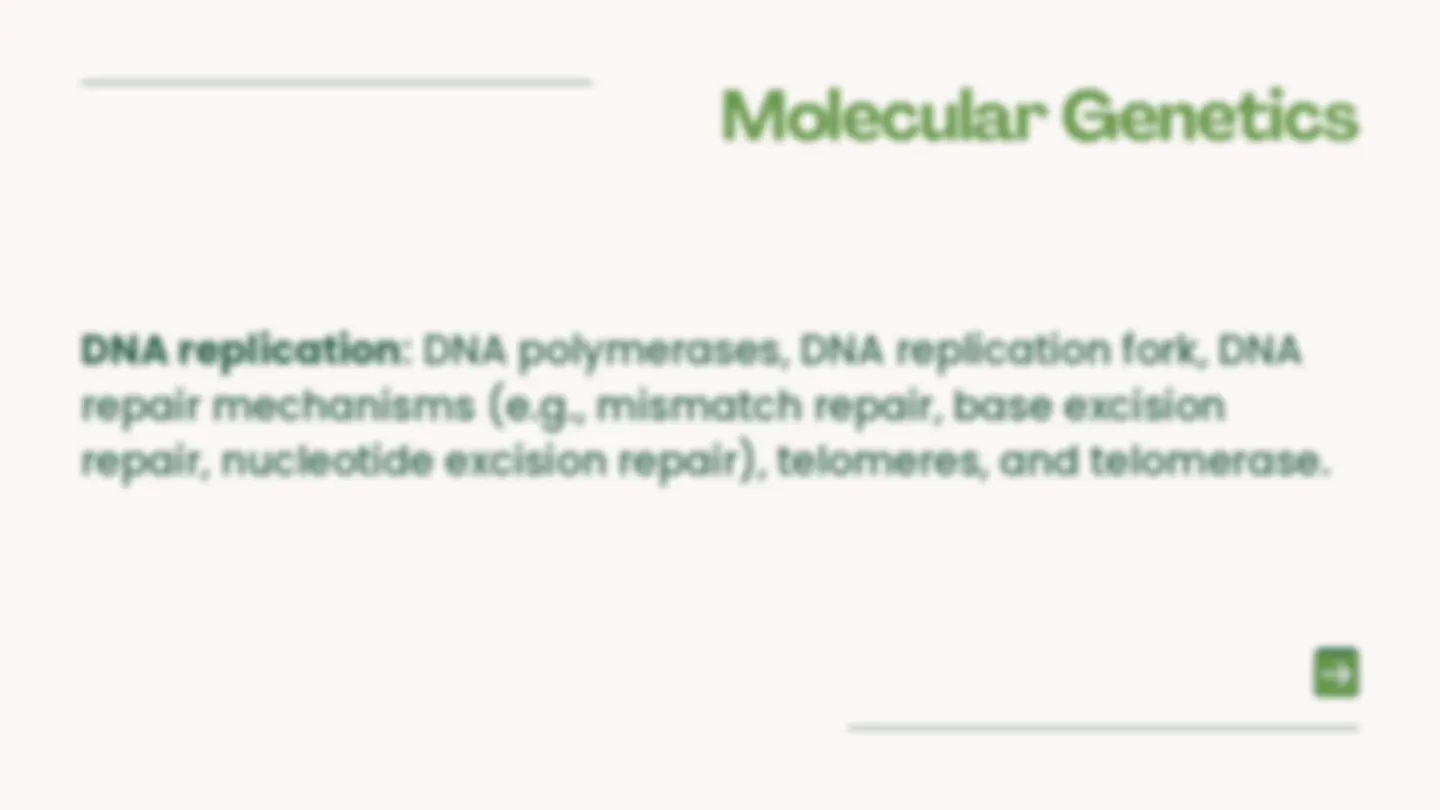
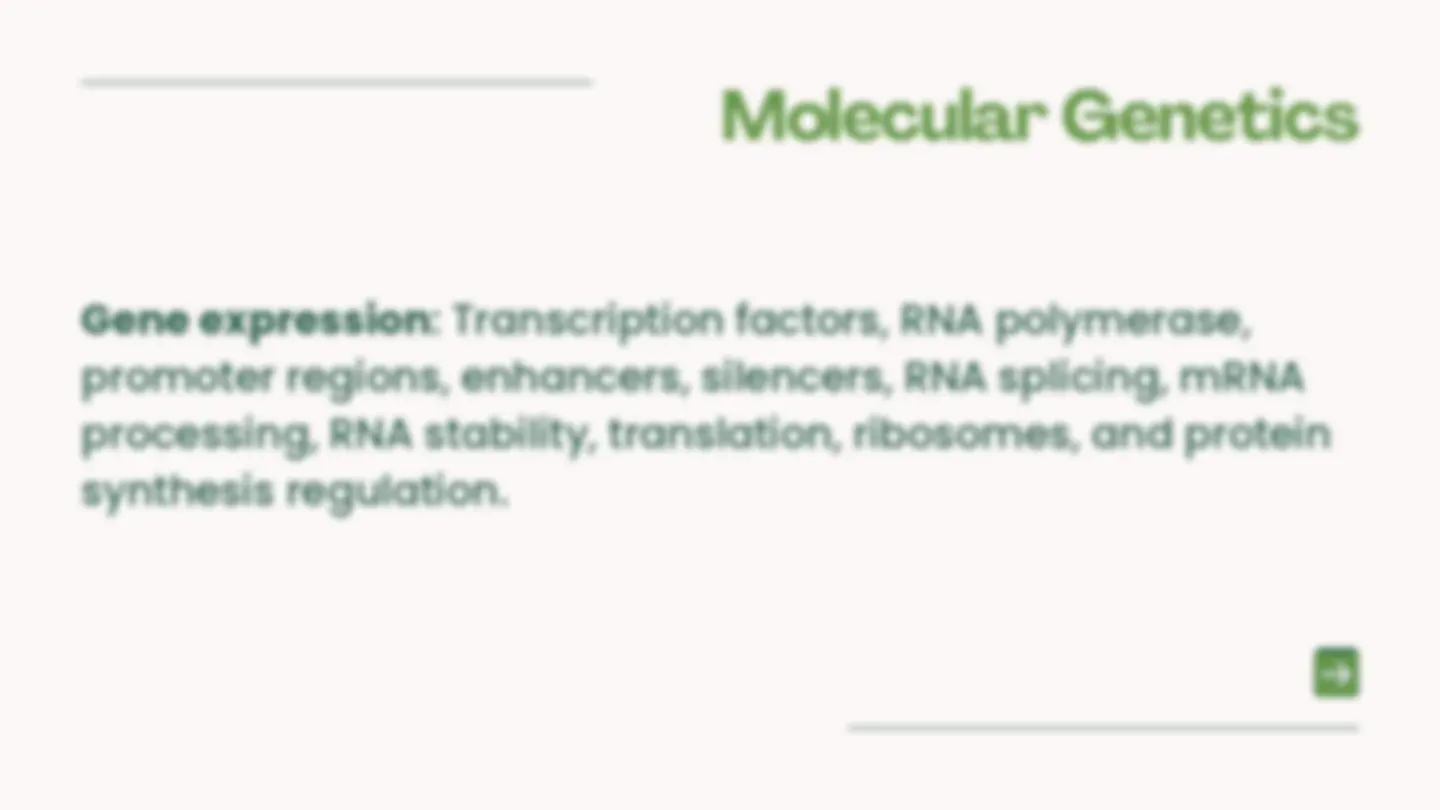
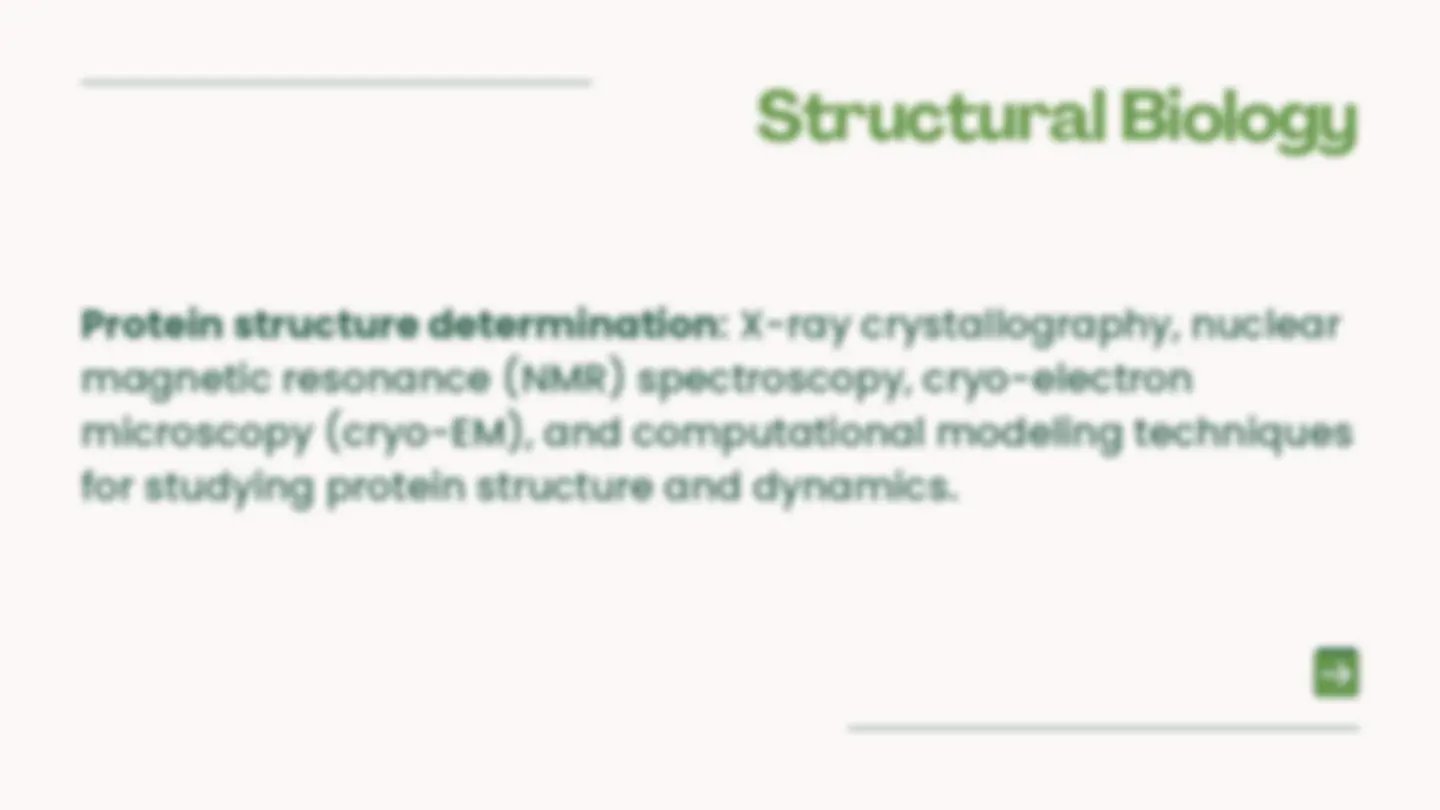



Study with the several resources on Docsity

Earn points by helping other students or get them with a premium plan


Prepare for your exams
Study with the several resources on Docsity

Earn points to download
Earn points by helping other students or get them with a premium plan
Community
Ask the community for help and clear up your study doubts
Discover the best universities in your country according to Docsity users
Free resources
Download our free guides on studying techniques, anxiety management strategies, and thesis advice from Docsity tutors
This presentation explores the field of biochemistry, focusing on the chemical processes and substances that underpin living organisms.
Typology: Slides
1 / 18

This page cannot be seen from the preview
Don't miss anything!











Presented by: Abigail Atiwag
Biochemistry is the branch of science that deals with the study of the chemical processes and substances that occur within living organisms. It combines principles from biology and chemistry to understand the molecular mechanisms underlying life processes, including metabolism, cellular functions, and the structure and function of biomolecules. Here are key topics in biochemistry:
Carbohydrates : Monosaccharides, disaccharides, polysaccharides, glycosidic bonds, carbohydrate metabolism, glycogen storage, and cellular recognition (e.g., glycoproteins, glycolipids). Lipids : Fatty acids, triglycerides, phospholipids, cholesterol, lipid bilayers, membrane structure, lipid metabolism, lipid signaling, and lipid-protein interactions.
Enzyme structure and function : Active sites, enzyme-substrate interactions, enzyme specificity, enzyme kinetics (Michaelis- Menten equation, Lineweaver-Burk plot), allosteric regulation, and enzyme inhibition (competitive, noncompetitive, mixed).
Metabolic pathways : Glycolysis, gluconeogenesis, citric acid cycle (Krebs cycle), oxidative phosphorylation, pentose phosphate pathway, glycogen metabolism, fatty acid metabolism, and amino acid metabolism.
Metabolic regulation : Hormonal regulation (insulin, glucagon), energy homeostasis, metabolic disorders (e.g., diabetes, metabolic syndrome), metabolic flux analysis, and metabolic pathways in different cell types and tissues.
Redox reactions : Electron transport chain, oxidative phosphorylation, electron carriers (NADH, FADH2), redox potentials, electron donors and acceptors, and energy transduction in biological systems.
Signal transduction pathways : Receptor-ligand interactions, second messengers (cAMP, cGMP, IP3, DAG), protein kinases, protein phosphorylation, G-protein coupled receptors (GPCRs), and intracellular signaling cascades.
DNA replication : DNA polymerases, DNA replication fork, DNA repair mechanisms (e.g., mismatch repair, base excision repair, nucleotide excision repair), telomeres, and telomerase.
Biomolecular complexes : Protein-protein interactions, protein- ligand interactions, protein-DNA interactions, membrane proteins, ion channels, receptors, and molecular recognition in biological systems.
Biochemistry plays a crucial role in understanding the molecular basis of life, disease mechanisms, drug action, genetic disorders, biotechnology applications, and the development of therapeutics. It provides insights into the intricate biochemical processes that govern living organisms and drives advancements in medicine, agriculture, biotechnology, and environmental science.